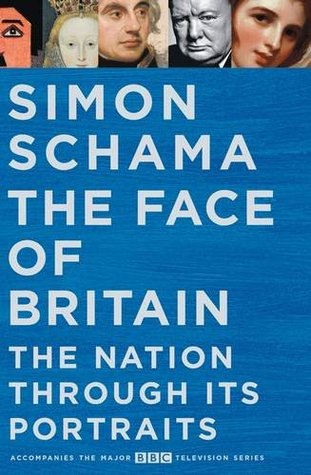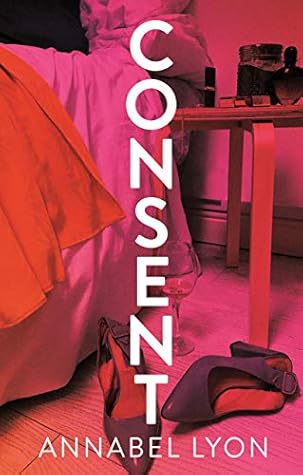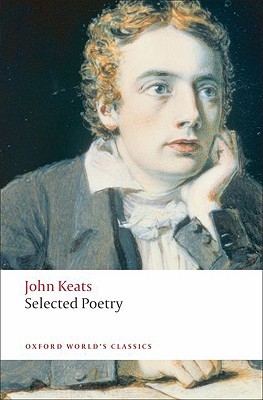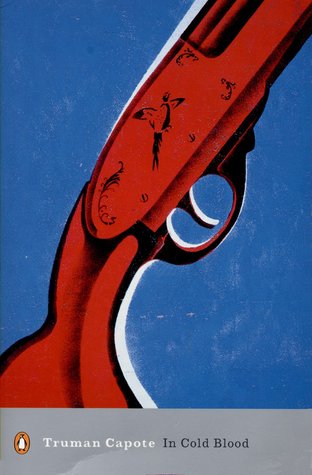May in Books
I started May with The Haunting of Hill House by Shirley Jackson, an author I had been wanting to read for a while.

I really enjoyed this one. The characters are interesting, the descriptions of the house are fantastic, and I love the creeping menace which builds up throughout this book. I've read ghost stories before, which I couldn't get into because I just found them too unrealistic. I had no such problem with The Haunting of Hill House. Shirley Jackson builds up a fascinating relationship between the main character and the house, so that we're never quite sure who's haunting whom. This is a clever little story, wholly absorbing, and with delightfully comic touches.
I was craving some non-fiction, so I chose The Face of Britain: The Nation Through its Portraits by Simon Schama next.

The Face of Britain is a collection of short histories, illustrated by portraits from the National Portrait Gallery, and separated into five thematic sections. It reads almost like a guided tour around the gallery. I enjoyed learning more about some immediately recognisable portraits, as well as about some household names in British art. I think that The Face of Britain would have benefitted from more illustrations, especially as paintings are often described which the reader cannot see, and a more coherent structure. Although it is not surprising that a book with such a sweeping title lacks a strong structure and occasionally resorts to generalisations, it is still disappointing in a book of this size. Ultimately I got what I wanted out of this book, but I think that there was definitely more to get out of the source material.
My next read was Consent by Annabel Lyon, longlisted for this year's Women's Prize for Fiction.

Consent was very different from what I expected from a book longlisted for the Women's Prize for Fiction. I was expecting something more original or literary, but I don't mind at all that it wasn't. Consent is one of the most readable books I've read this year, and I tore through this book, which had me hooked from page one. I enjoyed reading about the affluent lifestyles of its characters, as well as their addictive habits. I also thought Consent raised some interesting questions, as you might expect from that title, and perhaps if it had explored them more fully this might have been closer to the book I was expecting.
If you liked this one, I'd recommend Ruthless Women by Melanie Blake (you can read my review on this blog post).
I continued to work my way through this year's Women's Prize for Fiction nominees with Transcendent Kingdom by Yaa Gyasi, which made the shortlist.

Yaa Gyasi's approach to postgraduate study feels fresh, as Gifty (our protagonist) turns to science for answers after addiction destroys her brother's life. I loved the details of Gifty's experiments, and the heart-breaking idea that her brother's addiction is the spark of inspiration behind her work. Transcendent Kingdom is a gorgeous title, and I loved the way Yaa Gyasi talked about science and religion, as well as Gifty's ferocious curiosity. I liked the way the story flowed between past and present, and I think that format worked really well. But, despite the engaging storyline, I found the oddly detached writing style stopped me completely losing myself in this one.
Next up was Inferno: A Memoir of Motherhood and Madness by Catherine Cho, from the Jhalak Prize shortlist.

I tore through this story of a woman's time on a psychiatric ward, having being involuntary committed following a harrowing bout of postpartum psychosis. As she adapts to day-to-day life on the ward, Catherine Cho finds herself dwelling on who she is, and how she got here. The story's tension didn't ease as Cho dwelt on past traumas, not searching for any simple cause and effect, but nonetheless finding resonances in her past and her present. I love the way Cho lets us see how the understandable feelings of anxiety and paranoia, as a new mother feeling the scrutiny of her family, builds to something unrecognisable to most of us. I also love that Cho's racial identity is interwoven into her narrative, giving nuance to more commonly experienced situations. Catherine Cho is clearly a natural storyteller, and I am in awe of her bravery in choosing to tell this story.
I Belong Here: A Journey Along the Backbone of Britain by Anita Sethi, which I read next, was one of my most anticipated books of the year.

I Belong Here is so much more than an account of Anita Sethi's physical journey across the Pennines; this is also a journey of healing of reclamation, and the reader is privileged to be alongside Sethi every step of the way. I loved the author's digressions, as she makes eloquent and impassioned arguments about the future of our world; the way we treat each other, and our planet. There are so many great ideas in this book, although I would have preferred them to be expressed in a more structured format. I am so glad that Anita Sethi made something so beautiful and inspiring out of the racially-motivated hate crime she suffered, and I would definitely encourage you to give I Belong Here a read.
You can read my full review here.
Wanting to read some more poetry, I eventually decided on Selected Poetry by John Keats.

Keats has been on my to-read list ever since I studied some of his poems during my MA. It was his use of language which first struck me (in particular the image, from Ode to Melancholy, of "him whose strenuous tongue / Can burst Joy's grape against his palate fine"), and I couldn't help but read several of the poems in this edition aloud. This edition isn't particularly up-to-date, and the notes are purely informative, but it serves its purpose well as far as the poems themselves go. There is a nice variety, and I delighted in discovering and savouring them.
Next up was In Cold Blood by Truman Capote, which is one of those books I'd always meant to read at some point.

I don't usually read true crime, as I'm much more comfortable reading about fictional crimes, but I liked Truman Capote's style of writing. In Cold Blood reads like narrative non-fiction; an engaging story, but impeccably researched and told by an impartial voice. It is a slower read than most thrillers, but the story has so much more to give for anyone willing to give it the time.
You can read my full review here.
Do you ever find yourself trying to decide whether to read a book, and suddenly you see references to it everywhere? That happened with me and Leave the World Behind by Rumaan Alam.

I love the concept of this book: a family are on holiday in a luxurious home they have rented for the week, when suddenly the home's owners turn up at the door. Something has happened, and they want to come home. What I love about Leave the World Behind is that Rumaan Alam has taken this intriguing (and relatable) concept, and really done something interesting with it by making the holidaying family white, and the owners of the home Black. If you're looking for a slow-burner, a novel simmering with tension, look no further.
And that's it for May. Here's hoping that June brings some good books along with the sunshine!

I really enjoyed this one. The characters are interesting, the descriptions of the house are fantastic, and I love the creeping menace which builds up throughout this book. I've read ghost stories before, which I couldn't get into because I just found them too unrealistic. I had no such problem with The Haunting of Hill House. Shirley Jackson builds up a fascinating relationship between the main character and the house, so that we're never quite sure who's haunting whom. This is a clever little story, wholly absorbing, and with delightfully comic touches.
I was craving some non-fiction, so I chose The Face of Britain: The Nation Through its Portraits by Simon Schama next.

The Face of Britain is a collection of short histories, illustrated by portraits from the National Portrait Gallery, and separated into five thematic sections. It reads almost like a guided tour around the gallery. I enjoyed learning more about some immediately recognisable portraits, as well as about some household names in British art. I think that The Face of Britain would have benefitted from more illustrations, especially as paintings are often described which the reader cannot see, and a more coherent structure. Although it is not surprising that a book with such a sweeping title lacks a strong structure and occasionally resorts to generalisations, it is still disappointing in a book of this size. Ultimately I got what I wanted out of this book, but I think that there was definitely more to get out of the source material.
My next read was Consent by Annabel Lyon, longlisted for this year's Women's Prize for Fiction.

Consent was very different from what I expected from a book longlisted for the Women's Prize for Fiction. I was expecting something more original or literary, but I don't mind at all that it wasn't. Consent is one of the most readable books I've read this year, and I tore through this book, which had me hooked from page one. I enjoyed reading about the affluent lifestyles of its characters, as well as their addictive habits. I also thought Consent raised some interesting questions, as you might expect from that title, and perhaps if it had explored them more fully this might have been closer to the book I was expecting.
If you liked this one, I'd recommend Ruthless Women by Melanie Blake (you can read my review on this blog post).
I continued to work my way through this year's Women's Prize for Fiction nominees with Transcendent Kingdom by Yaa Gyasi, which made the shortlist.

Yaa Gyasi's approach to postgraduate study feels fresh, as Gifty (our protagonist) turns to science for answers after addiction destroys her brother's life. I loved the details of Gifty's experiments, and the heart-breaking idea that her brother's addiction is the spark of inspiration behind her work. Transcendent Kingdom is a gorgeous title, and I loved the way Yaa Gyasi talked about science and religion, as well as Gifty's ferocious curiosity. I liked the way the story flowed between past and present, and I think that format worked really well. But, despite the engaging storyline, I found the oddly detached writing style stopped me completely losing myself in this one.
Next up was Inferno: A Memoir of Motherhood and Madness by Catherine Cho, from the Jhalak Prize shortlist.

I tore through this story of a woman's time on a psychiatric ward, having being involuntary committed following a harrowing bout of postpartum psychosis. As she adapts to day-to-day life on the ward, Catherine Cho finds herself dwelling on who she is, and how she got here. The story's tension didn't ease as Cho dwelt on past traumas, not searching for any simple cause and effect, but nonetheless finding resonances in her past and her present. I love the way Cho lets us see how the understandable feelings of anxiety and paranoia, as a new mother feeling the scrutiny of her family, builds to something unrecognisable to most of us. I also love that Cho's racial identity is interwoven into her narrative, giving nuance to more commonly experienced situations. Catherine Cho is clearly a natural storyteller, and I am in awe of her bravery in choosing to tell this story.
I Belong Here: A Journey Along the Backbone of Britain by Anita Sethi, which I read next, was one of my most anticipated books of the year.

I Belong Here is so much more than an account of Anita Sethi's physical journey across the Pennines; this is also a journey of healing of reclamation, and the reader is privileged to be alongside Sethi every step of the way. I loved the author's digressions, as she makes eloquent and impassioned arguments about the future of our world; the way we treat each other, and our planet. There are so many great ideas in this book, although I would have preferred them to be expressed in a more structured format. I am so glad that Anita Sethi made something so beautiful and inspiring out of the racially-motivated hate crime she suffered, and I would definitely encourage you to give I Belong Here a read.
You can read my full review here.
Wanting to read some more poetry, I eventually decided on Selected Poetry by John Keats.

Keats has been on my to-read list ever since I studied some of his poems during my MA. It was his use of language which first struck me (in particular the image, from Ode to Melancholy, of "him whose strenuous tongue / Can burst Joy's grape against his palate fine"), and I couldn't help but read several of the poems in this edition aloud. This edition isn't particularly up-to-date, and the notes are purely informative, but it serves its purpose well as far as the poems themselves go. There is a nice variety, and I delighted in discovering and savouring them.
Next up was In Cold Blood by Truman Capote, which is one of those books I'd always meant to read at some point.

I don't usually read true crime, as I'm much more comfortable reading about fictional crimes, but I liked Truman Capote's style of writing. In Cold Blood reads like narrative non-fiction; an engaging story, but impeccably researched and told by an impartial voice. It is a slower read than most thrillers, but the story has so much more to give for anyone willing to give it the time.
You can read my full review here.
Do you ever find yourself trying to decide whether to read a book, and suddenly you see references to it everywhere? That happened with me and Leave the World Behind by Rumaan Alam.

I love the concept of this book: a family are on holiday in a luxurious home they have rented for the week, when suddenly the home's owners turn up at the door. Something has happened, and they want to come home. What I love about Leave the World Behind is that Rumaan Alam has taken this intriguing (and relatable) concept, and really done something interesting with it by making the holidaying family white, and the owners of the home Black. If you're looking for a slow-burner, a novel simmering with tension, look no further.
And that's it for May. Here's hoping that June brings some good books along with the sunshine!
Published on May 31, 2021 13:38
No comments have been added yet.



